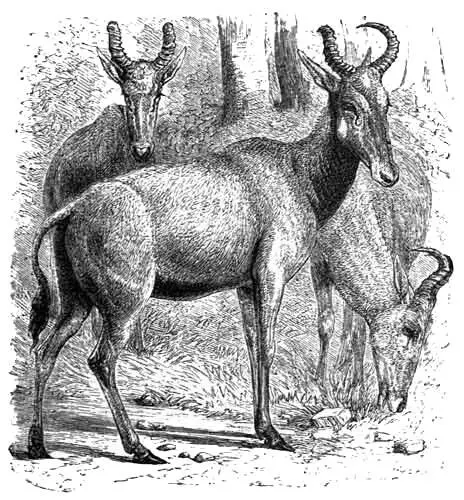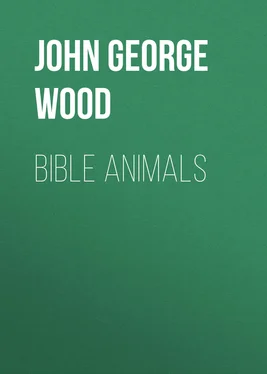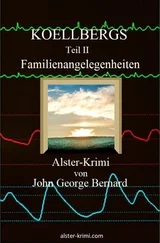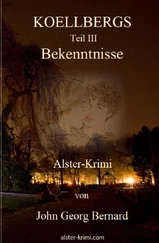John George Wood - Bible Animals
Здесь есть возможность читать онлайн «John George Wood - Bible Animals» — ознакомительный отрывок электронной книги совершенно бесплатно, а после прочтения отрывка купить полную версию. В некоторых случаях можно слушать аудио, скачать через торрент в формате fb2 и присутствует краткое содержание. Жанр: foreign_prose, foreign_religion, Философия, foreign_psychology, foreign_antique, на английском языке. Описание произведения, (предисловие) а так же отзывы посетителей доступны на портале библиотеки ЛибКат.
- Название:Bible Animals
- Автор:
- Жанр:
- Год:неизвестен
- ISBN:нет данных
- Рейтинг книги:3 / 5. Голосов: 1
-
Избранное:Добавить в избранное
- Отзывы:
-
Ваша оценка:
- 60
- 1
- 2
- 3
- 4
- 5
Bible Animals: краткое содержание, описание и аннотация
Предлагаем к чтению аннотацию, описание, краткое содержание или предисловие (зависит от того, что написал сам автор книги «Bible Animals»). Если вы не нашли необходимую информацию о книге — напишите в комментариях, мы постараемся отыскать её.
Bible Animals — читать онлайн ознакомительный отрывок
Ниже представлен текст книги, разбитый по страницам. Система сохранения места последней прочитанной страницы, позволяет с удобством читать онлайн бесплатно книгу «Bible Animals», без необходимости каждый раз заново искать на чём Вы остановились. Поставьте закладку, и сможете в любой момент перейти на страницу, на которой закончили чтение.
Интервал:
Закладка:
It is said that in some places, where the Bubales have learned to endure the presence of man, they will mix with his herds for the sake of feeding with them, and by degrees become so accustomed to the companionship of their domesticated friends, that they live with the herd as if they had belonged to it all their lives. This fact shows that the animal possesses a gentle disposition, and it is said to be as easily tamed as the gazelle itself.
Even at the present day the Bubale has a very wide range, and formerly had in all probability a much wider. It is indigenous to Barbary, and has continued to spread itself over the greater part of Northern Africa, including the borders of the Sahara, the edges of the cultivated districts, and up the Nile for no small distance. In former days it was evidently a tolerably common animal of chase in Upper Egypt, as there are representations of it on the monuments, drawn with the quaint truthfulness which distinguishes the monumental sculpture of that period.

THE BUBALE, OR FALLOW DEER OF SCRIPTURE.
" And Solomon's provision for one day was thirty measures of fine flour, and threescore measure of meal; ten fat oxen, and twenty oxen out of the pastures, and an hundred sheep; beside harts and roebucks, and fallow-deer, and fatted fowl. "—1 Kings iv. 22, 23.
It is probable that in and about Palestine it was equally common, so that there is good reason why it should be specially named as one of the animals that were lawful food. Not only was its flesh permitted to be eaten, but it was evidently considered as a great dainty, inasmuch as the Jachmur is mentioned in 1 Kings iv. 23 as one of the animals which were brought to the royal table. See the passage quoted in full below the illustration.
Even at the present day it is seen near the Red Sea; and as within the memory of man it had a much larger range than can now be assigned to it, we may safely conjecture that it resided in Palestine in sufficient numbers to afford a constant supply of food to the royal residence.
In size the Bubale is about equal to that of a heifer, and its general colour is reddish brown. The head is long and narrow, so that the heavy and deeply-ridged horns seem to stand out with peculiar boldness. The shoulders are rather high, the neck is very ox-like, and from the end of the tail hangs a tuft of long black hair. It is a gregarious animal, and is found in herds, though not of very great numbers.
The Bubale is closely allied to the hartebeest, the well-known antelope of Southern Africa.
THE SHEEP
Importance of Sheep in the Bible—The Sheep the chief wealth of the pastoral tribes—Tenure of land—Value of good pasture-land—Arab shepherds of the present day—Difference between the shepherds of Palestine and England—Wanderings of the flocks in search of food—Value of the wells—How the Sheep are watered—Duties of the shepherd—The shepherd a kind of irregular soldier—His use of the sling—Sheep following their shepherd—Calling the Sheep by name—The shepherd usually a part owner of the flocks—Structure of the sheepfolds—The rock caverns of Palestine—David's adventure with Saul—Penning of the Sheep by night—Use of the dogs—Sheep sometimes brought up by hand—How Sheep are fattened in the Lebanon district—The two breeds of Sheep in Palestine—The broad-tailed Sheep, and its peculiarities—Reference to this peculiarity in the Bible—The Talmudical writers, and their directions to sheep-owners.
We now come to a subject which will necessarily occupy us for some little time.
There is, perhaps, no animal which occupies a larger space in the Scriptures than the Sheep. Whether in religious, civil, or domestic life, we find that the Sheep is bound up with the Jewish nation in a way that would seem almost incomprehensible, did we not recall the light which the New Testament throws upon the Old, and the many allusions to the coming Messiah under the figure of the Lamb that taketh away the sins of the world.
In treating of the Sheep, it will be perhaps advisable to begin the account by taking the animal simply as one of those creatures which have been domesticated from time immemorial, dwelling slightly on those points on which the sheep-owners of the old days differed from those of our own time.
In the first place, the tenure of land was—and is still—entirely different from anything that can be found in our own country. With us, the comparatively large amount of population, placed on a comparatively small area of ground, prohibits the mode of sheep-keeping as practised in the East, where the pasture-lands are of vast extent, and common to all who choose to take their flocks to them. We have at present the Downs and the Highlands as examples of such pasturage, but they are of small extent when compared with the vast plains which are used for this purpose in the East.
The only claim to the land seems, in the old times of the Scriptures, to have lain in cultivation, or perhaps in the land immediately surrounding a well. But any one appears to have taken a piece of ground and cultivated it, or to have dug a well wherever he chose, and thereby to have acquired a sort of right to the soil. The same custom prevails at the present day among the cattle-breeding races of Southern Africa. The banks of rivers, on account of their superior fertility, were considered as the property of the chiefs who lived along their course, but the inland soil was free to all.
Had it not been for this freedom of the land, it would have been impossible for the great men to have nourished the enormous flocks and herds of which their wealth consisted; but, on account of the lack of ownership of the soil, a flock could be moved to one district after another as fast as it exhausted the herbage, the shepherds thus unconsciously imitating the habits of the gregarious animals, which are always on the move from one spot to another.
Pasturage being thus free to all, Sheep had a higher comparative value than is the case with ourselves, who have to pay in some way for their keep. There is a proverb in the Talmud which may be curtly translated, "Land sell, sheep buy."
The value of a good pasture-ground for the flocks is so great, that its possession is well worth a battle, the shepherds being saved from a most weary and harassing life, and being moreover fewer in number than is needed when the pasturage is scanty. Sir S. Baker, in his work on Abyssinia, makes some very interesting remarks upon the Arab herdsmen, who are placed in conditions very similar to those of the Israelitish shepherds in a bad pasture-land.
"The Arabs are creatures of necessity; their nomadic life is compulsory, as the existence of their flocks and herds depends upon the pasturage. Thus, with the change of seasons they must change their localities according to the presence of fodder for their cattle.... The Arab cannot halt in one spot longer than the pasturage will support his flocks. The object of his life being fodder, he must wander in search of the ever-changing supply. His wants must be few, as the constant change of encampment necessitates the transport of all his household goods; thus he reduces to a minimum his domestic furniture and utensils....
"This striking similarity to the descriptions of the Old Testament is exceedingly interesting to a traveller when residing among these curious and original people. With the Bible in one's hand, and these unchanged tribes before the eyes, there is a thrilling illustration of the sacred record; the past becomes the present, the veil of three thousand years is raised, and the living picture is a witness to the exactness of the historical description. At the same time there is a light thrown upon many obscure passages in the Old Testament by the experience of the present customs and figures of speech of the Arabs, which are precisely those that were practised at the periods described....
Читать дальшеИнтервал:
Закладка:
Похожие книги на «Bible Animals»
Представляем Вашему вниманию похожие книги на «Bible Animals» списком для выбора. Мы отобрали схожую по названию и смыслу литературу в надежде предоставить читателям больше вариантов отыскать новые, интересные, ещё непрочитанные произведения.
Обсуждение, отзывы о книге «Bible Animals» и просто собственные мнения читателей. Оставьте ваши комментарии, напишите, что Вы думаете о произведении, его смысле или главных героях. Укажите что конкретно понравилось, а что нет, и почему Вы так считаете.












